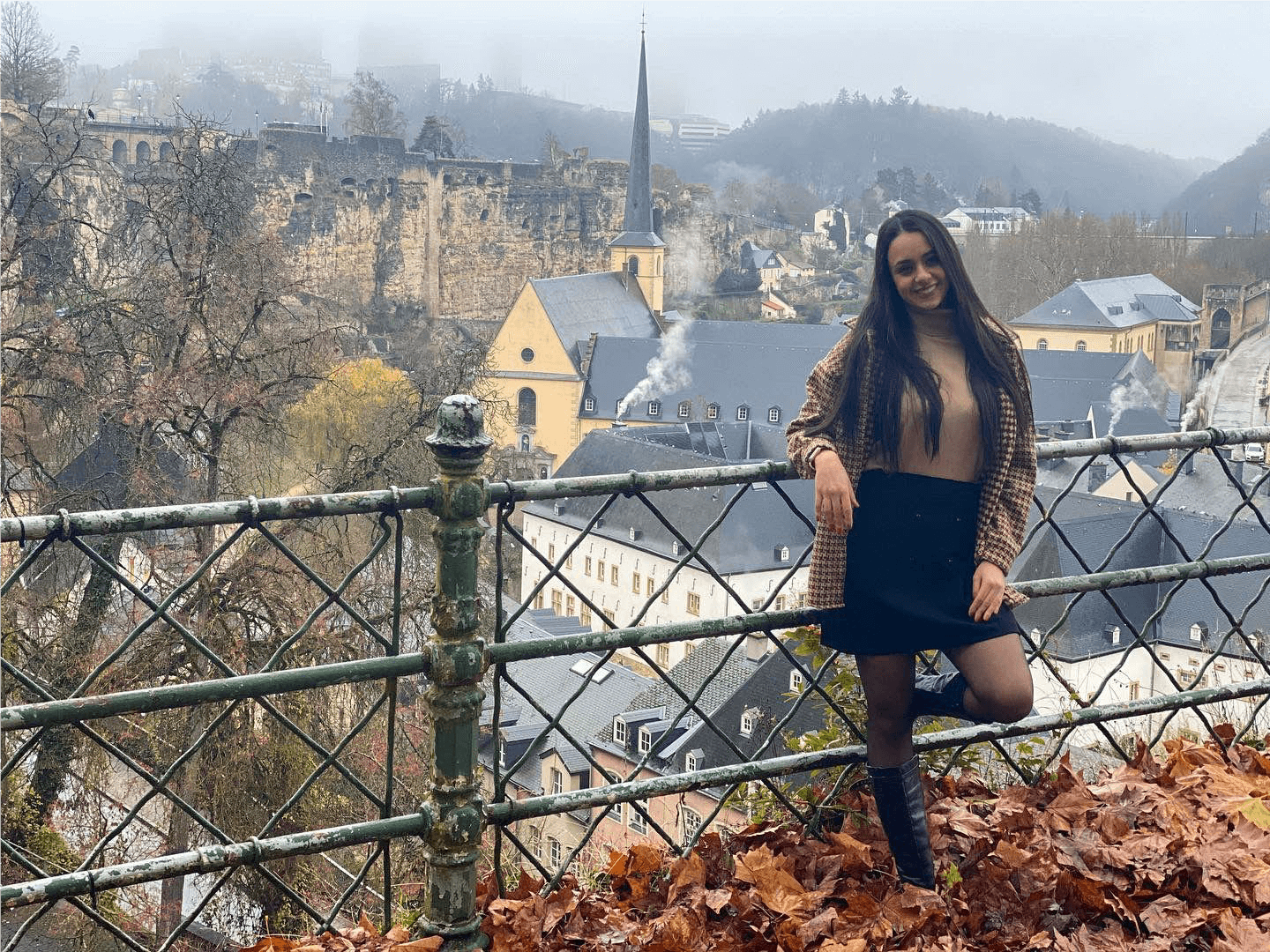Hellen Luisa de Castro e Silva
 Where do you call home? Can you describe it?
Where do you call home? Can you describe it?
I grew up in two small cities, Lorena and Piquete, from State of São Paulo (Brazil) and I lived a long time in Itajubá, a city from the South Minas Gerais State during my college and Master work. They are very calm cities and it is impossible for me choose only one of them as a home, since each one contributed to my growth, and friendships with amazing people. I still can meet them and we can remember stories from when we were kids and teens. This is really amazing! Although these cities being really important for me and being part of my growth, I still believe that home is inside us with all memories and learning that we take along the way. In a certain way, Ghent (Belgium) has also become my home.
What are some of your personal interests and hobbies?
I like having my friends around me, going to bars and restaurants, and getting closer to nature. In this way, travelling is one of the most amazing activities to me. I also like to spend some free time reading books and watching my favorite series and movies, and I really enjoy running outside and taking care of myself.
What is your biggest personal achievement so far?
My interest in research started in my second year of the college when I had the opportunity to start first scientific initiation in wastewater treatment for one year. From that, I conducted another scientific initiation project and decided to do a master's work in biogas energy, also focusing on sludge treatment and reuse of iron wastes as additives in anaerobic digestion process. I got fascinated and I professionally discovered myself in the field of environmental chemistry and how researches in this field can positively impact the quality of life on earth. All this work enabled me being a Doctoral student at the University of Ghent and meet people from all over the world, further contributing to incredible experiences.
What is the title of your PhD project? Can you explain it to a non-academic?
So far, the title of my research project is “Using upstream anaerobic digestion process-control to achieve minimal contents of undesired trace elements”. The main goal is to obtain fertilisers from mono and co-digestates with desirable concentrations of metals and nutrients in such a way it does not negatively impact the environment due to contamination process and contributes to a circular economy. Digestates are effluents from anaerobic reactors, obtained in anaerobic digestion process, which is nothing more than a process of degradation of organic matter with the participation of different groups of microorganisms that leads to the production of biogas, a renewable fuel that can be used in production of energy and heat. They can be used as organic fertilisers in agriculture, however, it may contain varied concentrations of nitrogen, phosphorus K, and undesirable concentrations of heavy metals. In this way, my research focuses on engineering process which will contribute to obtain reduced concentrations of these last elements in end-products.
What drives your interest in bio-based fertilisers?
The main reason of my interest in this field is contributing to an effective circular economy and more sustainable development. Currently, we have several biogas plants installed around the world and high rates of manure generated. The reuse of this waste can contribute not only to the reduction of its undue disposal, but also to a better quality of life of the population and lower energy consumption, since synthetic fertilisers are still mostly used worldwide.
Describe your experience with the FertiCycle ITN so far?
It has been really positive and amazing! Although the beginning has demanded more effort due to restricted options of the pandemic, we started having an online contact with a large community of researchers in the field, providing an insight of how valuable is such opportunity and the possibility of building good collaborations. Furthermore, we have already attended some courses with ITN’s candidates from other consortiums, contributing to being in contact with ongoing bio-based fertilisers researches in Europe and increasing our network as well.
What would you say are the benefits of the Marie Sklodowska-Curie Doctoral Fellowship?
The most benefits of the Marie Sklodowska-Curie Doctoral Fellowship are the incredible professional networking, tailored training courses and organization. They also include having the opportunity of exchanging experiences, feedbacks and partnerships, participating in seminars and other events, contributing to improve the researches of the candidates, in addition to their professional and personal growth.
How has the experience traveling abroad for this program been for you?
It was really hard in the beginning, since I had not lived abroad before and restrictive conditions of the pandemic, including the lack of contact with my research group made the adaptation process more difficult. However as the pandemic situation in Europe has been quite better and more activities have arisen, my experience has become gratifying! The University of Ghent also helped me a lot with the whole bureaucratic process and I am very grateful for that. Ghent is an international city with people from different places from the world and I have already made great friends here. I can also say that I have not only grown professionally, but also in a personally way, learning more about myself and making better choices for my development in different areas of life.
